Different continent, same virus: how families are coping
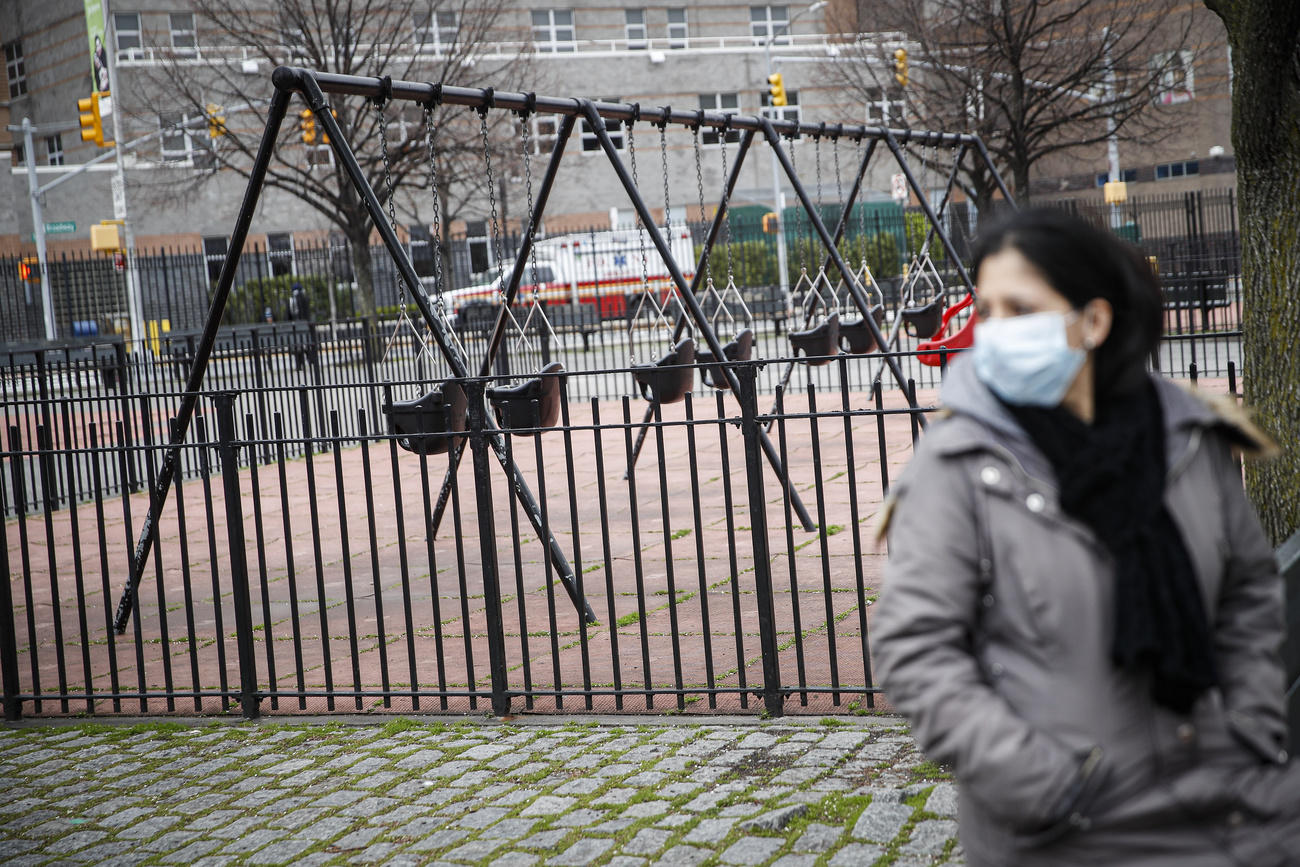
Families separated by oceans are finding comfort in their shared experience under the strain of the coronavirus pandemic. Three mothers with a connection to Switzerland talk about the challenges of living far away from loves ones.
You are only a flight away. The thought used to give Nicky Hueni comfort, living thousands of miles from her Swiss family. Nicky grew up in the small town of Wetzikon outside Zurich and now lives in the San Francisco Bay Area with her American husband and two young boys.
“The hardest part is that if something does happen, I can’t travel to see family,” she tells swissinfo.ch.
Her parents, grandparents and sister still live in Switzerland, but she worries most about her grandparents who are in their 80s. “I feel better knowing that my sister has forbidden them to leave the house,” she says.
As airlines cancel flights and more countries shut their borders, Swiss families living on opposite sides of the planet feel both closer and farther away from loved ones than ever before. While families deal with the effects of the virus locally, they find comfort in the shared experiences with friends and family members across national borders.
Families swap photos, anecdotes, fears and tips in group chats, video conferences and telephone calls. “We talk about what measures are in place where they are, what shops are open and how we’re all managing under the stress.” It provides some comfort to know that we’re in this together wherever we are in the world, Nicky says.
Coming to terms with the pandemic
Nicky was on a bus to work in San Francisco when she heard the news about California’s “shelter in placeExternal link” order. “I was so on edge that day. It started with news that the schools were closing, then it was the shelter in place order. It was a scramble after that.”
As an accountant in the middle of tax season, Nicky had been putting in 50- to 60-hour weeks. This changed a couple weeks ago when the US government announced it was pushing back the tax-filing deadline by a couple of months.
Nicky and her family drove to their house in Napa and she has barely left the house since.
When Carmen Friedli returned from a two-week solo trip visiting family in Texas, she found a very different Switzerland from when she had left. “Everyone was living their day-to-day life in the US and two days after I got back, everything was shut down in Switzerland.”
The American mother of two who lives just outside Bern caught one of the last flights back to Switzerland. “In the back of my mind I kept saying, ‘please make it home to my kids’. Later that evening President Trump announced he was cutting off travel with Europe.”
On the same day that Switzerland shut schools so did many states in the US. But the sense of urgency hit much sooner in Switzerland than in her hometown in south Texas.
People are still getting together for barbecues, she tells swissinfo. “I worry that people are not getting the full information there. In the US, people want to spin things into a positive, but in this case you can’t.”
She adds that it isn’t until people are affected personally that they will realise the seriousness of the situation.
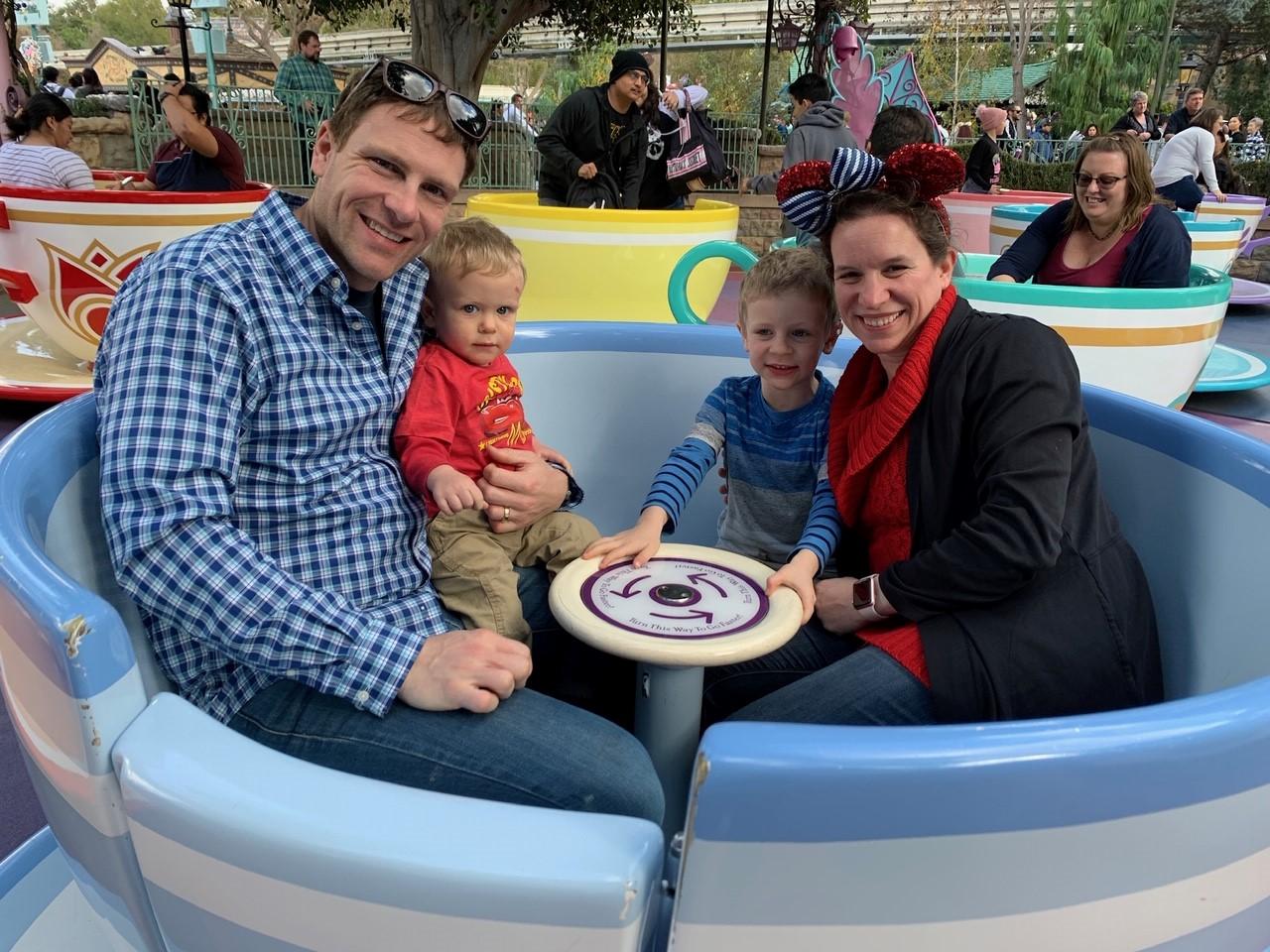
Surgical gloves
Living in New York, which has seen cases skyrocket in the past few weeks, there is no way to downplay the crisis, says Jimena Färber.
Jimena was born in Uruguay but grew up in Geneva where she met her husband. They moved to New York over a decade ago with their three kids.
She remembers when things started to change. “Three weeks ago I started seeing people wearing surgical gloves holding on to the subway rails. Our doorman started wearing gloves and schools stopped allowing parents to go inside the school to pick up their kids.”
Like parents everywhere, the real shock came when the schools closed. That’s when the family fled the Big Apple for Long Island, which is about one hour away, and have been there ever since.
But it was what was going on back home in Geneva that really jolted her. A friend who works at a preschool there said she can’t leave because she has to make sure that there are enough people available to take care of the children of healthcare workers.
“This brought me to tears thinking about how many people are trying to save our lives and how many people have to go to work to keep us safe,” Jimena says.
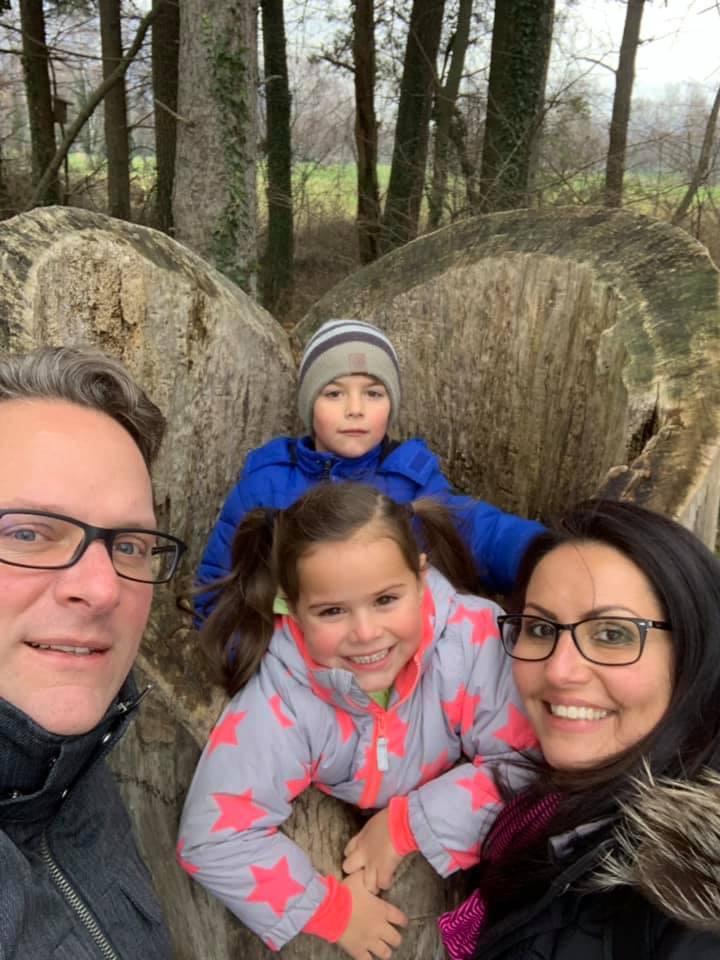
A safe distance
What Nicky has found most challenging is telling her sons, aged one and four, that they can’t see friends and family, especially her father-in-law who lives close by. The other day her elder son told his grandfather via video chat that “we are staying away from you to keep you safe because of the coronavirus”.
No matter where you are in the world, it’s challenging telling young children they can’t jump on the lap of or hug a loved one because of something they can’t touch or see.
Carmen has arranged for her kids to play with one other family in the neighbourhood, but like many in Switzerland she is keeping the circle small. The kids learnt about the coronavirus in school, which included a very detailed demonstration of how to wash their hands.
Keeping a routine and some sense of normality for her kids is most important. “We don’t want to make them panic if we don’t have to.”
Jimena’s three sons are acutely aware of what is going on, although she makes a conscious decision not to watch the news with them. There was a case in their 14-storey building on the Upper Westside in New York. If the kids get too close to others when they are out walking or biking, people will tell them directly “make sure you keep your distance”.
One of the biggest changes for all three families is shopping. “I’m not used to buying in bulk in Switzerland the way people do in the US. I usually just go to the store and pick up stuff whenever we need something,” says Carmen. This has changed as the family tries to limit trips outside the home.
In New York state, shopping has become more complicated, Jimena remarks. “Two weeks ago the local store stopped letting people come inside. You have to call ahead of time and then pick up the food at the window.”
Some restaurants have minimum orders for deliveries, so they don’t make a lot of small trips. Jimena explains that one place will deliver a minimum of 48 bagels so they order and split that up among neighbours.
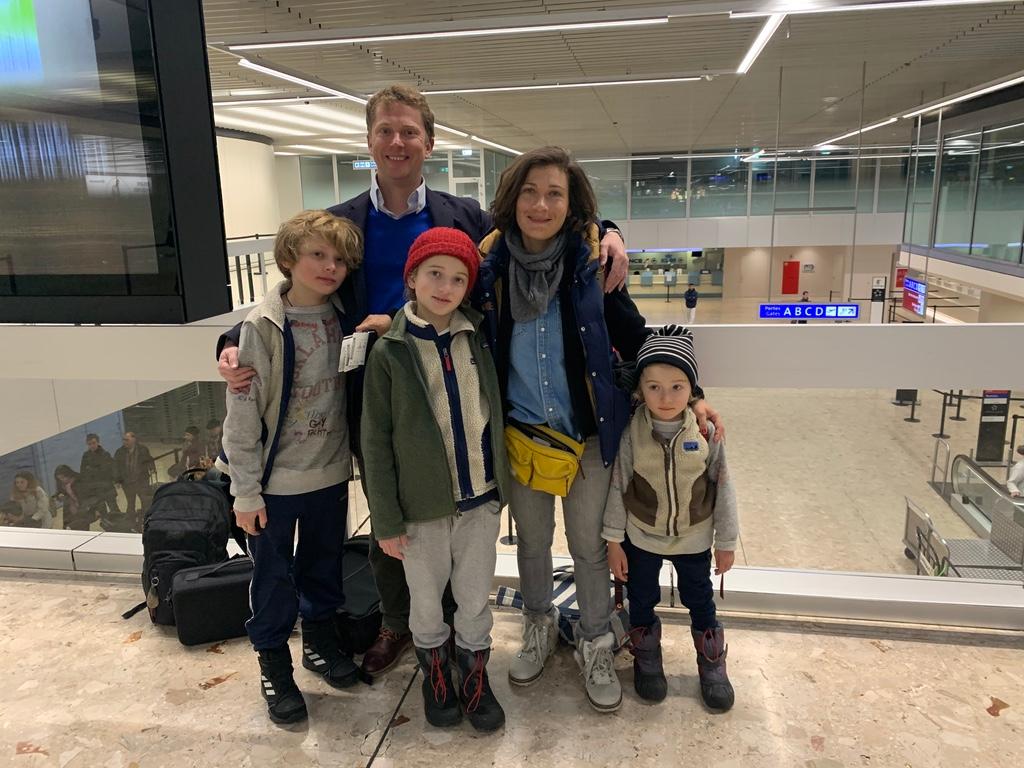
Finding calm in the storm
All three mothers talk about the calm and quiet in a usually chaotic schedule with kids.
The pace is already slower in Switzerland, Carmen says, but there is still this “quiet” without the sounds of cars and people everywhere.
While in California and New York walks along the beach provide fresh air and a respite from the onslaught of coronavirus news, in Switzerland the forest is the refuge with young kids.
Businesses and neighbours are also trying to support each other in any way they know how. In the Napa Valley wine country, which depends heavily on restaurants and tourism for business, residents are buying groceries from restaurants that are selling ingredients they can’t use. In New York, Jimena is supporting restauranteurs that have set up GoFundMe pages to help pay workers.
Carmen is sharing tips and messages of support with parents and neighbours via group chats.
But despite the common bond with her family in Switzerland, Jimena says she worries that a lot more people will suffer in the US. She knows her family are some of the lucky ones in a society where, as she explains, the health system has “two speeds” depending on your income and opportunities. “There’s no safety net in the US the way we have in Switzerland,” she says.
“When I saw that in Geneva people were applauding health workers from their balconies, I thought we should be doing this here as well. As sad as this is, I hope something good comes out of it.”

More
Coronavirus: the situation in Switzerland

In compliance with the JTI standards
More: SWI swissinfo.ch certified by the Journalism Trust Initiative









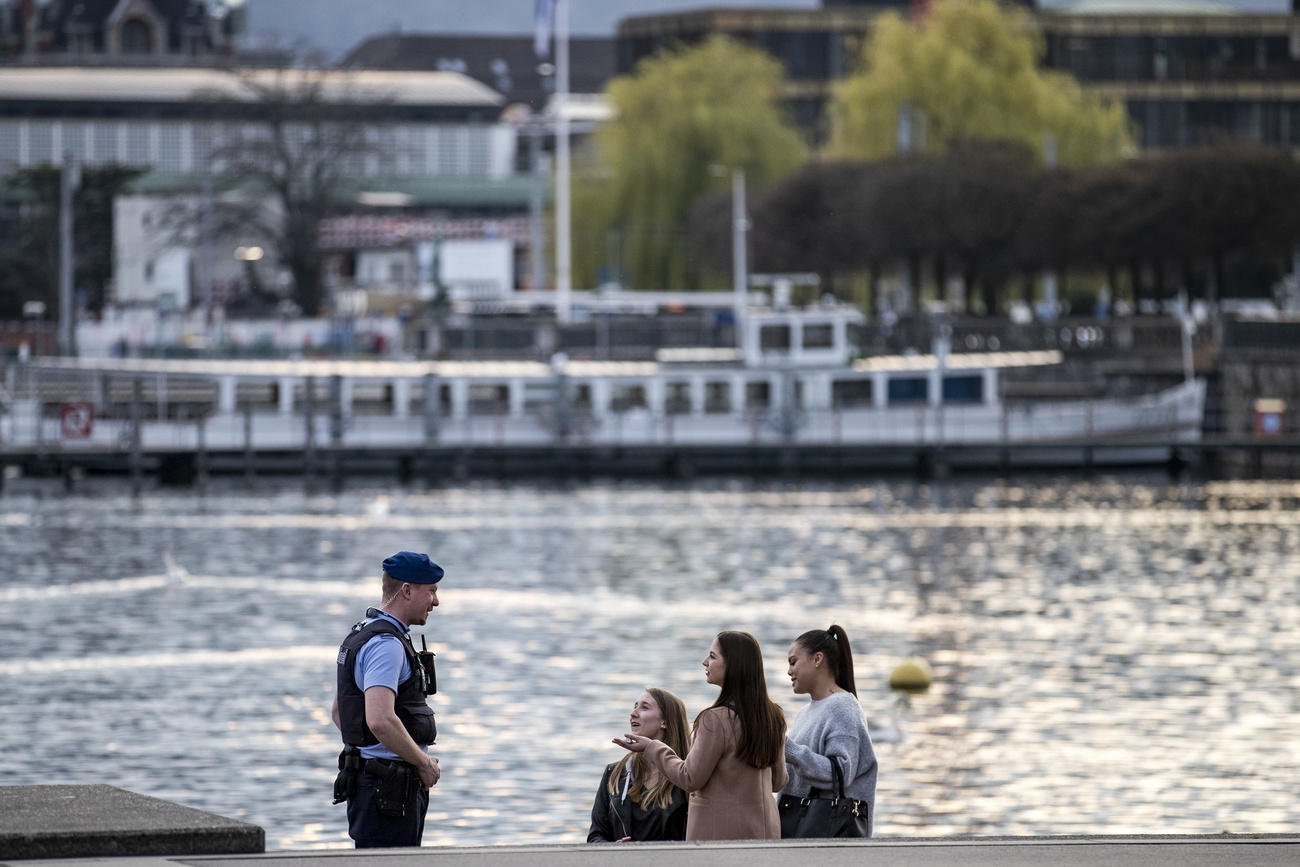

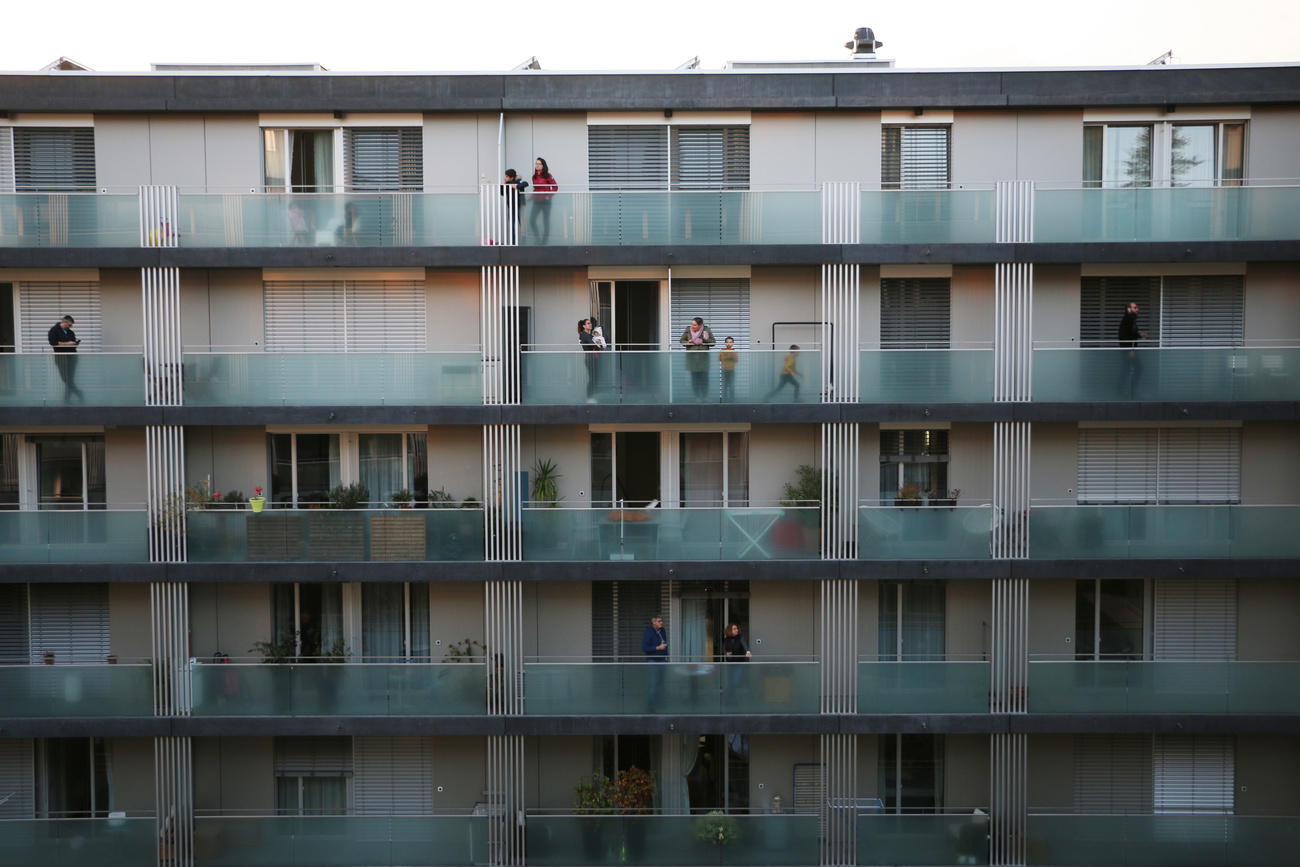
You can find an overview of ongoing debates with our journalists here . Please join us!
If you want to start a conversation about a topic raised in this article or want to report factual errors, email us at english@swissinfo.ch.